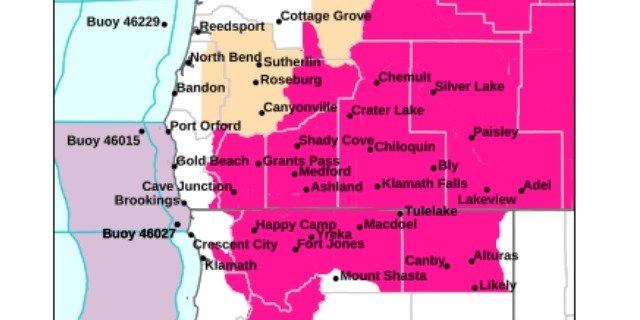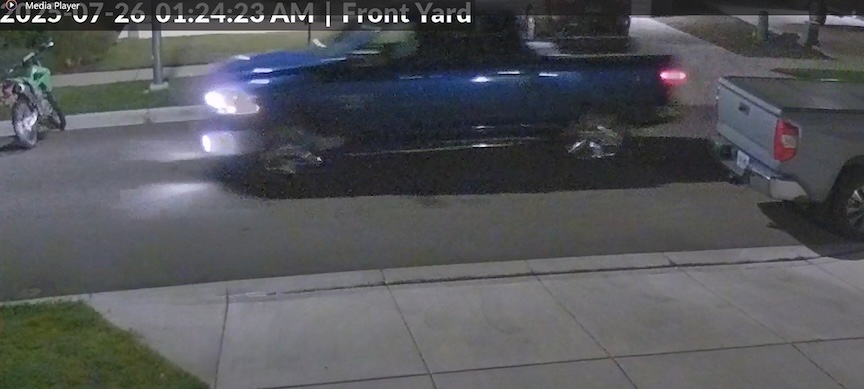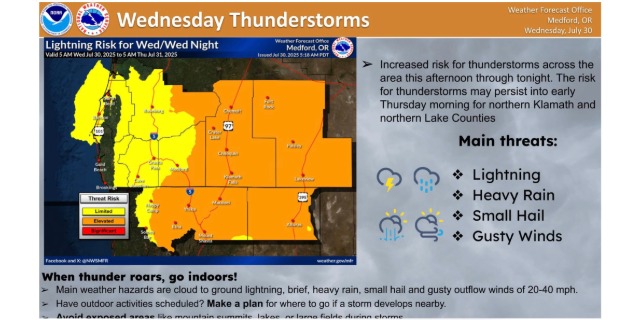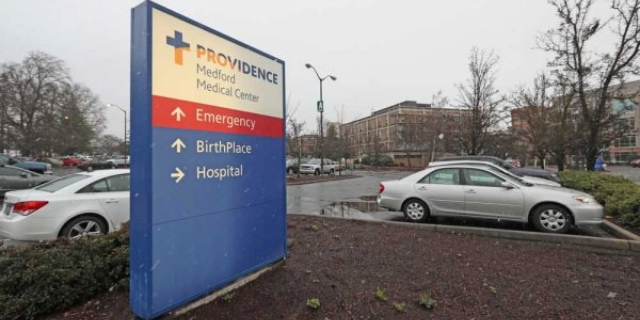Ashland man’s dinosaur bones trial should not be severed, judge rules
Published 12:00 pm Saturday, May 25, 2024
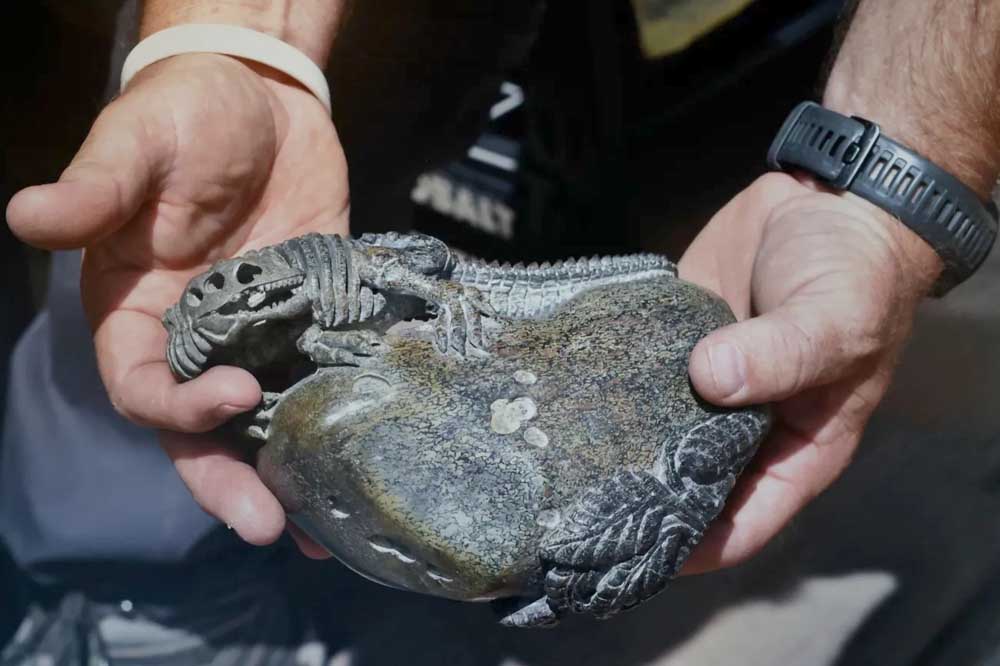
- Stolen paleontological resources are pictured in a photo that is on display during a press conference to announce charges in a stolen dinosaur bones case at the U.S. Attorney’s Office in Salt Lake City on Oct. 19.
An Ashland man accused of using his company to export illegally obtained dinosaur bones from Utah and sell them to China as part of a criminal conspiracy cannot have his trial severed from that of his three co-defendants, a federal judge ruled.
Trending
U.S. District Court Judge David Nuffer of the District of Utah issued a 10-page opinion May 9 denying Jordan Willing’s motion filed March 8.
“Defendant’s concern with the potential for a negative spill-over effect from damaging evidence presented against codefendants is not a sufficient basis to sever the trial,” Nuffer wrote.
Jordan Willing had proposed that his trial begin this summer, despite Nuffer’s earlier ruling that a four-week jury trial be scheduled to begin Jan. 27, 2025, in Salt Lake City.
Trending
Jordan Willing, 41, is accused of using Ashland-based JMW Sales with his father, Steven Willing, 67, of Los Angeles to purchase 150,000 pounds of paleontological resources, including dinosaur bones, for $1.4 million from a couple in their 60s — Vint and Donna Wade of Moab, Utah — from March 2018 until at least March 2023, according to court filings.
The Rogue Valley Times previously reported that Jordan Willing was listed on LinkedIn as CEO and founder of Blue Marble in Ashland, a business on A Street founded by Willing and his wife that made “educational toys” that have “impacted the lives of their children and they hope will impact the lives of yours.”
The Times reported in October 2023 that a message on the previously accessible LinkedIn website noted that Jordan Willing’s page did not exist anymore.
The Willings and the Wades have all pleaded not guilty to multiple charges, including violating the federal Paleontological Resources Preservation Act, a 2009 law that prohibits anyone from knowingly selling, purchasing or exporting any fossilized remains.
In his March 8 filing, Willing had argued that his right to a fair trial would be violated and “undue prejudice” would occur if is tried alongside his co-defendants.
But prosecutors argued that joint trials, particularly in conspiracy cases, are preferred under the law. Prosecutors also argued that Jordan Willing could not put forth the “requisite demonstration that he will suffer actual prejudice” if he is tried with his co-defendants.
In a response to those claims, Jordan Willing argued that the government’s case against him relies on “prejudicial and inadmissible ‘spillover’ evidence” that is not tied to him.
Prosecutors and Jordan Willing also cited a 1968 U.S. Supreme Court ruling, Bruton v. United States, in their respective filings regarding trial severance.
That case centered around defendants George William Bruton and William James Evans, who were both charged with robbing a jewelry store that also operated as a U.S. Postal Service contract station.
The high court justices ruled 6-2 that Bruton was substantially prejudiced against when the jury heard an improperly obtained admission from Evans. In this ruling, the court held that the admission of certain co-defendant confessions at joint jury trials violates the Confrontation Clause of the U.S. Constitution’s Sixth Amendment that says defendants “shall enjoy the right … to be confronted with the witnesses against him.”
Jordan Willing used the Bruton case to argue that out-of-court statements of a non-testifying defendant may only be used against that particular defendant.
Prosecutors argued that “the mere presence of a Bruton issue in a case does not entitle a defendant to a separate trial.”
Nuffer said that, while some of the statements allegedly made by Vint Wade to investigators did not create issues in conflict with the Bruton case, some of the statements Steven Willing allegedly made to investigators did.
Nuffer agreed with prosecutors, however, that the high court’s decision in Bruton did not entitle Jordan Willing to a separate trial.
Nuffer asked Jordan Willing, his co-defendants and prosecutors to meet regarding co-defendant statements that “may carry a risk of violating Bruton” and determine which co-defendant statements the government intends to use at trial and which it won’t.


